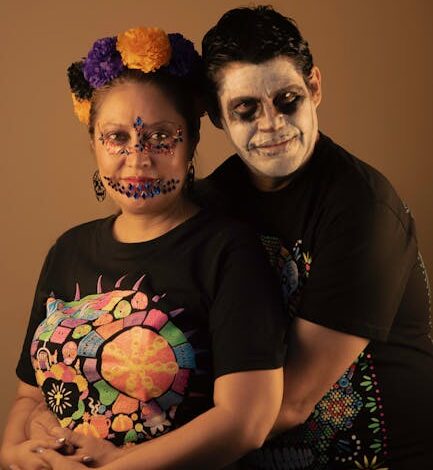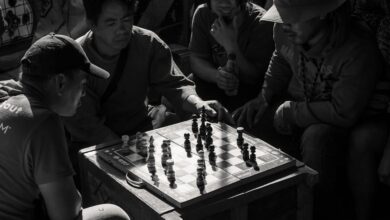The Weight of the Crown: Why “100% Fit” Means More for Messi

The whispers began almost immediately after the final whistle blew in Qatar. Even amidst the euphoria of Argentina’s historic World Cup triumph, one question lingered: Would Lionel Messi, the man who had finally captured the ultimate prize, grace the pitch for another? Now, his recent comments, choosing to hold off on a definitive answer regarding the 2026 World Cup, have brought that question roaring back.
It’s not a refusal born of arrogance, but rather, a profoundly human and tactical one: he’ll only play if he’s ‘100 per cent fit.’ But for a player of Messi’s stature, ‘100 per cent fit’ isn’t just about hamstrings and stamina; it’s about a galaxy of considerations that touch on legacy, expectation, and the very soul of a national hero. Let’s unpack what this decision, or rather, non-decision, truly signifies.
The Weight of the Crown: Why “100% Fit” Means More for Messi
For most athletes, being 100 per cent fit means a clean bill of health, no niggles, and peak physical condition. For Lionel Messi, particularly after achieving his lifelong dream of lifting the World Cup, that definition expands exponentially. It’s not merely about his physical readiness; it’s about his mental state, the immense pressure he carries, and his unyielding commitment to excellence.
Think about it: for two decades, he chased this trophy. Every missed penalty, every final defeat, every individual accolade felt incomplete without it. Now, with the monkey firmly off his back, the internal fire that drove him might have subtly shifted. He’s no longer proving anything to anyone, least of all himself.
The physical toll on a player like Messi, even one of his extraordinary talent, is immense. By 2026, he will be 39 years old. While Cristiano Ronaldo has defied age, and Luka Modrić continues to shine, the demands of a World Cup campaign are relentless. It’s not just the tournament itself, but the gruelling qualifying matches, the relentless travel, and the constant threat of injury.
The Mental Marathon
Beyond the physical, there’s the mental marathon. Messi has lived his entire adult life under an almost unimaginable spotlight. Every pass, every goal, every off-day scrutinised globally. To step onto the World Cup stage at 39, after having conquered it, would mean subjecting himself to that same, if not greater, level of expectation.
If he plays, the narrative instantly shifts from “can he win it?” to “can he win it again?” or “can he still perform at that level?” And if Argentina doesn’t succeed, the focus, fairly or unfairly, would inevitably land on him. Messi understands this better than anyone.
His “100 per cent fit” likely means he needs to feel he can genuinely be the decisive, game-changing Messi we’ve always known. Not a passenger, not a sentimental inclusion, but the player who can single-handedly turn a match on its head. Anything less, for a man who sets such impossibly high standards for himself, would simply not be good enough.
Beyond the Boots: Messi’s Evolution from Phenom to Sage
Messi’s career hasn’t just been a journey of accumulating trophies and individual accolades; it’s been a profound evolution of character. From the shy, prodigious talent who let his feet do the talking, he’s matured into a confident leader, a devoted family man, and now, arguably, a sage of the beautiful game.
His move to Inter Miami wasn’t just a career decision; it felt like a lifestyle choice. A chance to step away from the suffocating pressure of European top-tier football, enjoy the game, and spend quality time with his family. There’s a newfound peace about him, an air of contentment that wasn’t always present when the weight of a nation rested solely on his shoulders.
This contentment plays a massive role in his current stance. He has nothing left to prove. He has achieved everything there is to achieve. His motivation now stems from pure enjoyment and the desire to contribute meaningfully, rather than the relentless pursuit of an elusive honour.
The Role of an Elder Statesman
Even if he doesn’t play in 2026, Messi’s influence on the Argentina national team will remain immense. He is, and will forever be, a touchstone, a legend, and an inspiration. He can contribute as an elder statesman, a mentor to the next generation of Argentine talent. The likes of Julián Álvarez, Enzo Fernández, and Alejandro Garnacho have learned from the best, and his wisdom will continue to guide them.
We’ve seen how he embraced the leadership role in the latter stages of his international career, not just with goals and assists, but with fierce determination and passionate interventions. That leadership doesn’t necessarily require him to be on the pitch, boots laced, for every minute of a World Cup.
His careful consideration speaks volumes about his respect for the national team jersey and for the integrity of the competition. He won’t just turn up for the sake of it. He’ll only be there if he genuinely believes he can add value commensurate with his unparalleled status.
The Road to 2026: An Unpredictable Journey
Two years is an eternity in professional football. For any player, let alone one approaching 40, a multitude of factors can shift the landscape dramatically. Injuries, changes in form, the emergence of new talent, and the evolving dynamics of the national team itself all play a part in such a monumental decision.
Argentina, under Lionel Scaloni, has shown a remarkable ability to adapt and integrate new players. The squad that won in Qatar was a perfect blend of experience and youthful exuberance. By 2026, even more young talents will have emerged, vying for spots in the national team. Messi’s decision might also be influenced by how he sees the team’s evolution and whether his presence is truly essential for their success.
The qualifiers for the 2026 World Cup are also a significant hurdle. They are long, arduous, and demand consistent high-level performance. Will Messi want to commit to that entire cycle, with all its physical and mental demands, or will he prefer to focus on club commitments and allow others to take the lead?
The host nations — USA, Canada, and Mexico — mean a World Cup closer to his current base in Miami, potentially easing travel burdens compared to, say, Europe or Asia. But geographical convenience is a minor detail when weighed against the seismic personal and professional considerations he faces.
A Legacy Secure: Whatever He Decides
Ultimately, Lionel Messi’s measured stance on the 2026 World Cup isn’t a sign of indecision or lack of patriotism. It’s a testament to his profound understanding of what it takes to perform at the pinnacle of international football, and perhaps, more importantly, a display of wisdom gained from a career lived under the most intense spotlight imaginable.
It’s a reminder that even for the greatest of all time, the ultimate decision is not just about capability, but about conviction, passion, and the pure, unadulterated joy of the beautiful game. His legacy as the undisputed GOAT remains etched in history, not by one more tournament, but by a lifetime of unparalleled magic, unwavering dedication, and the sheer audacity of his genius. Whatever path he chooses, it will be the right one for him, and for the beautiful game.





